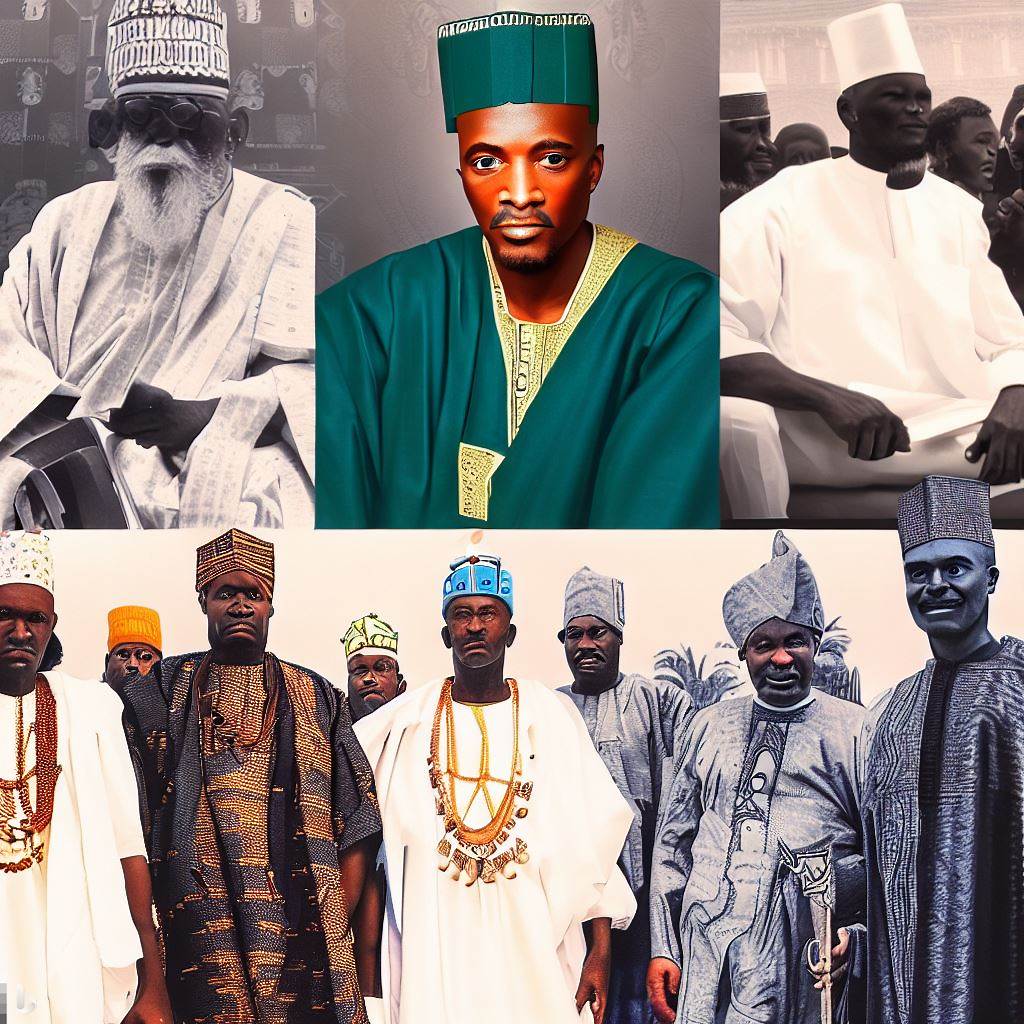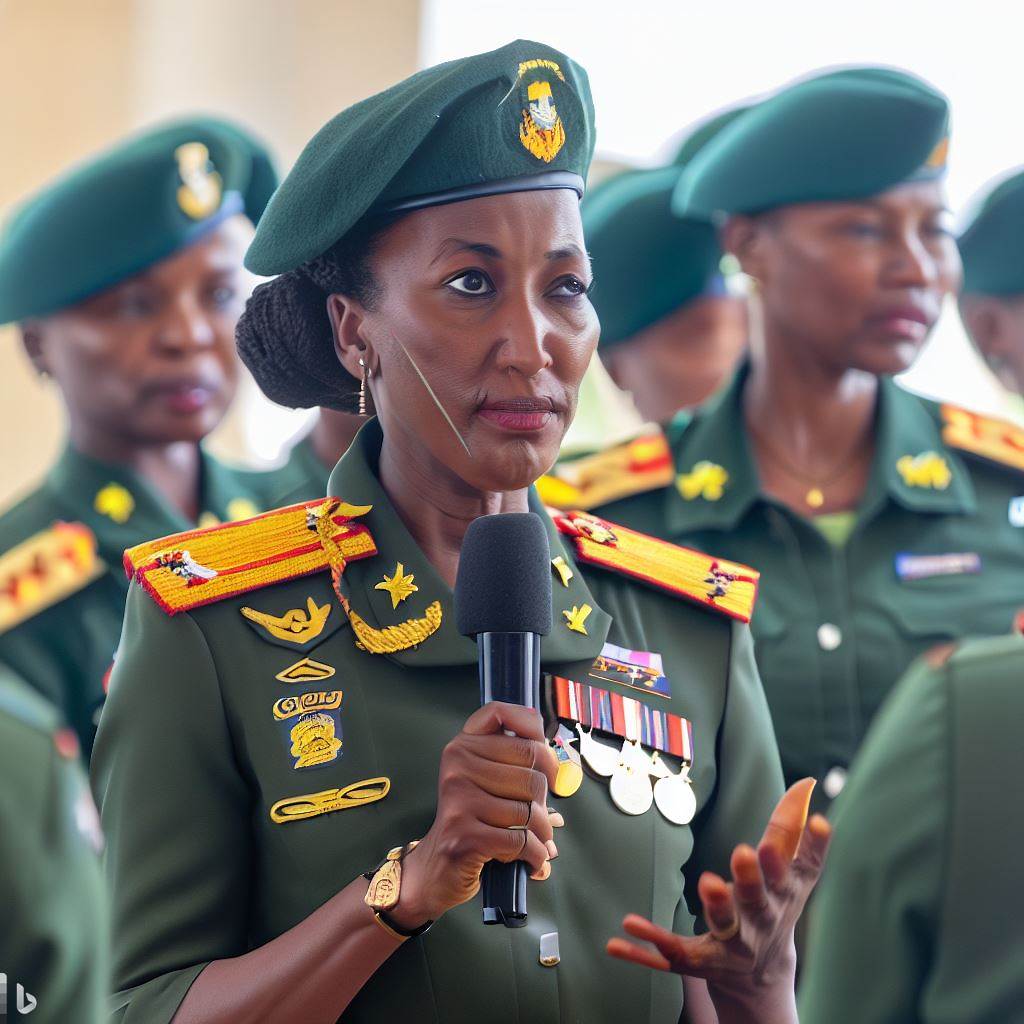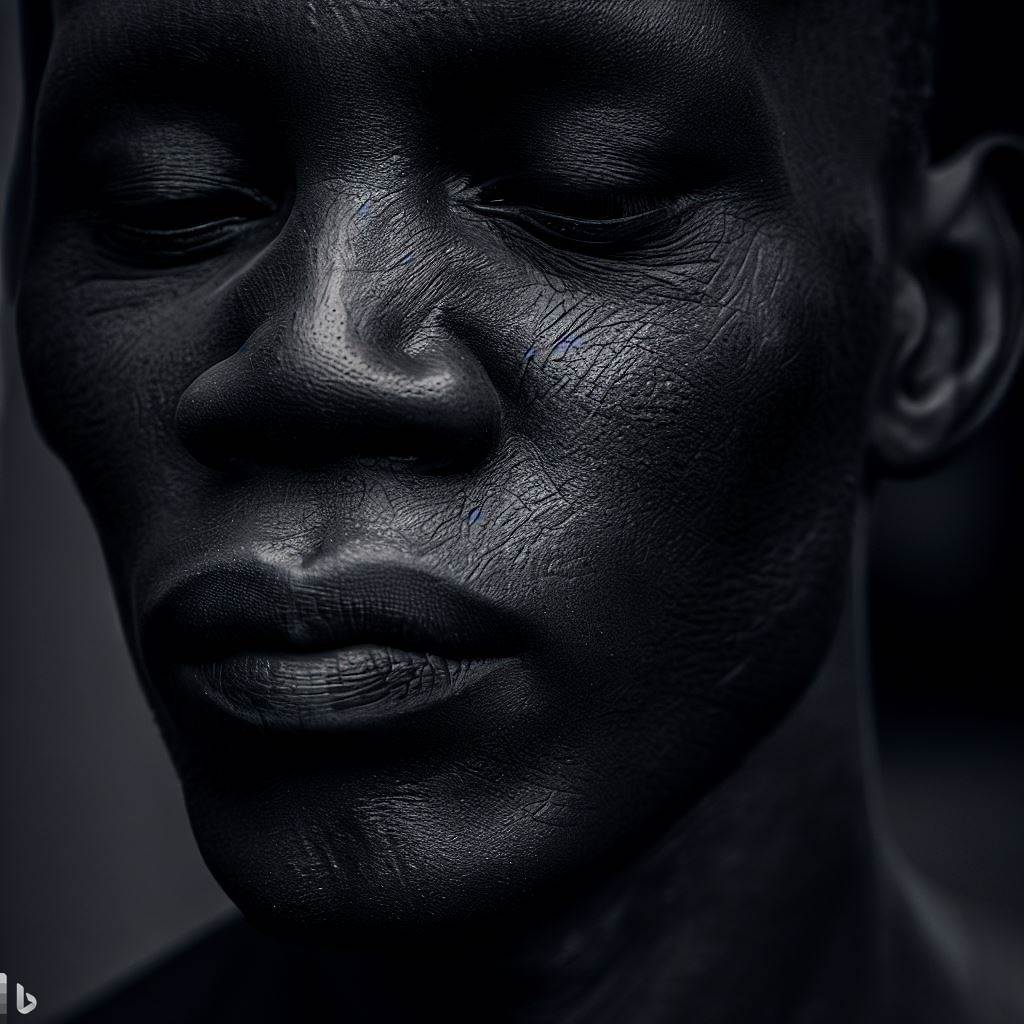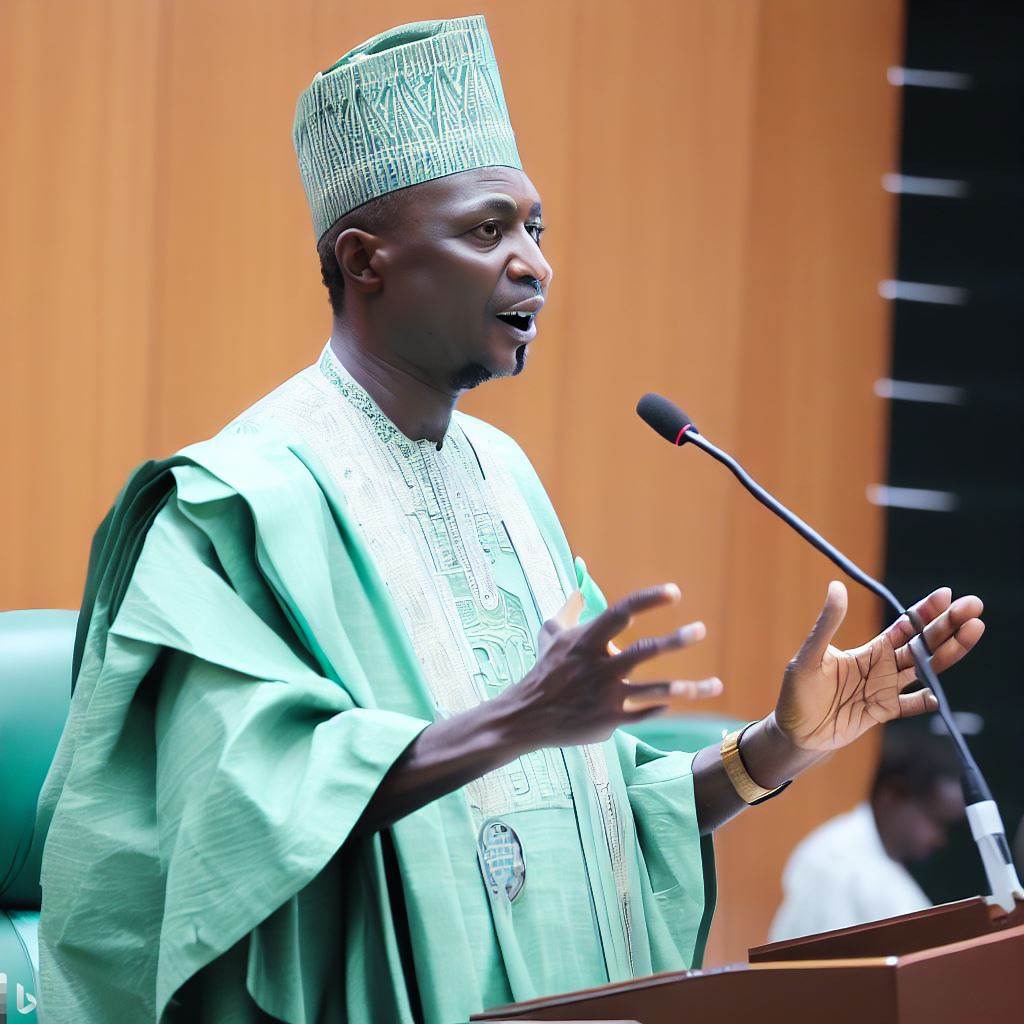Introduction
Nigeria, a West African country with a population of over 200 million people, has an interesting and complex history when it comes to its government structure.
This history is important to understand, as it has had a significant impact on modern-day Nigeria.
In this blog post, we will explore the evolution and history of the government structure of Nigeria, providing a brief overview of how it has changed over time.
Explanation of the topic’s relevance
The government structure of Nigeria is a critical aspect of its history, and it continues to be an essential topic of discussion today.
Understanding the evolution of Nigeria’s government structure allows us to see how the country has developed over time and provides insight into its current political climate.
What’s more, an understanding of Nigeria’s government structure is helpful in comprehending the challenges the country has faced, especially when it comes to issues like corruption, power-sharing, and democratic governance.
A brief overview of Nigeria’s government structure:
Nigeria’s government structure has undergone several significant changes since its independence from Britain in 1960. The country has experienced military coups, periods of democratic leadership, and several constitutional reforms.
Currently, the government of Nigeria is structured as a federal presidential representative democratic republic.
The president is both the head of state and the head of government, and there are three branches of government: the executive, legislative, and judicial branches.
In essence, an understanding of the evolution and history of the government structure of Nigeria is critical to comprehending the country’s political and social landscape.
Over the years, Nigeria has experienced significant changes in its government structure, and these have had an impact on the country’s development and its position as a leader on the African continent.
Read: Career Prospects for Young Architects in Nigeria
Pre-Colonial Era
In the Pre-Colonial Era, traditional political systems prevailed in Nigeria, with various kingdoms, empires, and communities. These systems were diverse, reflecting the country’s ethnic, linguistic, and cultural heterogeneity.
The political structures were mainly based on kinship, lineage, and clan affiliations and governed according to custom and tradition.
Religion also played a significant role in the government structure of Nigeria during this era. Islam, introduced through trans-Saharan trade routes, spread extensively in the North and influenced the political and social institutions.
Islamic principles, such as the concept of the Caliphate, helped unify the Northern peoples politically, while Christianity, brought by European missionaries, spread in the South and had similar impacts.
The emergence of Monarchies in Nigeria also marked significant developments in the government structure.
The Oyo Empire, for instance, which arose during the 14th-15th centuries and expanded its influence to the coast, was an early example of a centralized monarchy.
The Kingdom of Benin, with its vast wealth and sophisticated political institutions, was another example of such a system. In contrast, some kingdoms, like the Igbo communities, had decentralized political structures.
Overall, the Traditional political systems in Nigeria fostered a sense of community, social order, and peaceful coexistence.
However, the influence of religion in these systems and the emergence of monarchies, alongside other factors, paved the way for significant political transformations in the country.
Read: The Role of Nigerian Architects in Community Development
British Colonial Rule Era
A significant turning point for the Nigerian government structure came about during the British Colonial Rule Era.
This period in Nigerian history spans from the latter part of the 19th century to the mid-20th century when the British colonized Nigeria.
The Introduction of Indirect Rule
- The British colonialists ruled Nigeria through indirect rule, which involved using traditional rulers as intermediaries.
- The British embedded their authority into the pre-existing social and political structures of Nigeria rather than taking absolute power.
- British officials trained and instructed traditional rulers on how to run their communities according to their colonial policies.
- Indirect rule varied between northern and southern Nigeria and the way the British approached it depended on education levels, cultures, and political and economic systems.
- The adoption of indirect rule resulted in an increase in taxation and the collection of revenues.
The Establishment of Regional Governments
- In 1946, the British established three regions in Nigeria: Northern, Western, and Eastern regions.
- The regions were headed by regional ministers who were responsible for the governance of their respective regions.
- Each region had a House of Assembly and the heads of these houses were called Premiers.
- The regional governments gave Nigerians an opportunity to participate in governance and represent their regions.
- However, there were significant disparities between the regions, especially in terms of resources and human capacities, which led to unequal development.
The Emergence of Nigerian Politicians
- During the British colonial rule, Nigerians were not allowed to take part in the governance of their country.
- However, in the 30s and 40s, Nigerian nationalists emerged who demanded independence from Britain and started organizing themselves for this purpose.
- The first of such nationalists was Herbert Macaulay, who formed the Lagos Youth Movement in 1934.
- Other prominent nationalists include Nnamdi Azikiwe, Obafemi Awolowo, and Ahmadu Bello, who were the founding fathers of Nigerian politics.
- The emergence of Nigerian politicians led to the agitation for self-rule and the eventual independence of Nigeria in 1960.
The British Colonial Rule Era had a significant impact on the Nigerian government structure.
Indirect rule allowed the British to embed their authority in pre-existing structures while statutory regional governments gave Nigerians an opportunity to participate in governance.
The emergence of Nigerian politicians during this era played a crucial role in agitating for self-rule and independence from Great Britain.
Read: Appreciating Nigeria’s Architectural Heritage and Conservation
Post-Independence Era
Nigeria’s Adoption of Federalism
- Nigeria became a federal republic in 1963, adopting a federal government structure.
- The country was divided into 36 states with each state having its own government system.
- The central government was responsible for matters such as foreign policy and national security.
- Each state had its own constitution, legislature, and judiciary.
The First Republic and the Parliamentary System
- Nigeria became a republic in 1963, with Nnamdi Azikiwe as the first president.
- The country operated a parliamentary system of government, with Azikiwe as a ceremonial head of state.
- The Prime Minister, Sir Abubakar Tafawa Balewa, was the head of government.
- The First Republic faced challenges such as corruption, ethnic tensions, and a weak central government.
The Emergence of Military Rule
- In January 1966, a group of army officers led by Major Chukwuma Nzeogwu staged a military coup, resulting in the deaths of several political leaders.
- Military rule was established in Nigeria, with General Aguiyi Ironsi as the new head of state.
- In July 1966, Ironsi was overthrown in a counter-coup led by northern officers.
- General Yakubu Gowon emerged as the new head of state and Nigeria returned to a federal system of government.
- The Second Republic was established in 1979, with Shehu Shagari as the first executive president.
- However, the Second Republic was short-lived, as it was overthrown by a military coup in December 1983.
The post-independence era in Nigeria was characterized by a struggle to establish a stable and effective government structure. The country transitioned from a parliamentary system to military rule and back to a federal system.
The emergence of military rule had a significant impact on Nigeria’s government and politics, leading to authoritarianism, corruption, and abuse of power.
It took several years for democracy to be restored and for Nigeria to adopt a more stable form of government.
Today, Nigeria is a federal republic with a constitution that provides for a separation of powers and a system of checks and balances.
The country continues to face challenges such as corruption, insecurity, and political instability, but its government structure has evolved to provide a framework for addressing these issues and ensuring a more democratic and accountable system of governance.

Fourth Republic
- The 1999 Constitution: The Fourth Republic began on May 29, 1999, when the current Nigerian Constitution was adopted.
- The shift to a presidential system: The Fourth Republic marked a shift from the parliamentary system of government to the presidential system.
- Current government structure: Under the current government structure, Nigeria is a federal republic with three branches of government – the executive, legislative, and judiciary.
- The executive: The executive branch of the government is headed by the President, who is both the head of state and the head of government.
- The legislative: The legislative branch is made up of the Senate and the House of Representatives, collectively known as the National Assembly.
- The judiciary: The judiciary is headed by the Supreme Court and is responsible for interpreting the laws of the land.
- The role of traditional rulers: Despite the existence of a democratic government structure, traditional rulers still play a significant role in the governance of Nigeria, particularly in rural areas.
- Current challenges: The Fourth Republic has faced numerous challenges, including corruption, ethnic and religious tensions, and political violence.
- The need for reform: Various individuals and groups have called for a reform of the government structure to address these challenges and improve governance in Nigeria.
The Fourth Republic began on May 29, 1999, with the adoption of the current Nigerian Constitution
The Fourth Republic marked a notable shift to a presidential system, transforming Nigerian politics. The current structure consists of three branches of government: executive, legislative, and judiciary.
The President leads the executive branch as both head of state and government. A four-year term with a limit of two terms governs the President’s tenure.
The legislative branch comprises the Senate and House of Representatives, forming the National Assembly. The Senate has 109 members while the House of Representatives has 360 members.
The judiciary is headed by the Supreme Court, with a Chief Justice and up to 20 other justices. Traditional rulers, based on ethnic and cultural ties, play a significant role in rural governance, maintaining peace and resolving disputes.
However, challenges plague the Fourth Republic, including corruption, ethnic tensions, and political violence. Calls for government reform grow stronger to overcome these obstacles and foster development. Nigeria seeks to build a brighter future amid persistent challenges.
Read: Addressing Housing Crisis through Architecture in Nigeria
Challenges and Criticisms
1. Ethnic and religious tensions
One of the major challenges faced by the Nigerian government structure is the ethnic and religious tensions that exist within the country.
Nigeria is made up of over 250 ethnic groups and over 500 languages, making it one of the most diverse countries in the world.
This diversity has often led to conflicts between different groups, particularly along ethnic and religious lines. These conflicts have sometimes erupted into violence, which has resulted in loss of life and property.
2. Corrupt practices in the government
Corruption is a major issue in the Nigerian government structure. Despite efforts to combat corruption, it remains prevalent in many sectors of the government.
Public officials often abuse their power for personal gain, and there have been several cases of embezzlement of public funds.
Corruption has also affected service delivery in the country, with poor infrastructure and social services being provided to citizens.
3. Calls for restructuring of the government
Recent years have seen increasing calls for the restructuring of the Nigerian government structure. Many Nigerians believe that the current structure is not working effectively, and that a more decentralized system would be more appropriate.
This would involve devolving more power to the states, allowing them to have greater control over their affairs.
Proponents of restructuring argue that this would lead to greater efficiency and effectiveness in governance, and also help to address some of the ethnic and religious tensions in the country.
Delve into the Subject: Day in the Life: A Nigerian Bomb Disposal Expert’s Job
Conclusion
Summary of the blog post’s main points
The history of Nigeria’s government structure has evolved over the years. The pre-colonial era was characterized by different empires and kingdoms that were independent.
However, with colonization came a centralized government structure that continued even after independence in 1960.
There were military coups and interventions that disrupted the democratic process, but it has been re-established.
Reflection on the Nigerian government’s evolution
The evolution of Nigeria’s government structure has been a mixed bag.
While the centralized system enabled better governance, it also perpetuated systemic corruption, favoritism for specific ethnic groups, and political instability.
It took long to prioritize the interests of citizens over those of the elite and improve the overall democratic process.
Final thoughts and recommendations
The Nigerian government should focus on transparency and accountability in all its endeavors.
The current government must identify with and understand the needs of people to build an inclusive government.
Only then can the government enhance its accountability and effectively utilize the available human resources.
The Nigerian government must involve representatives from various regions and ethnic groups to avoid marginalization and make it truly democratic.




